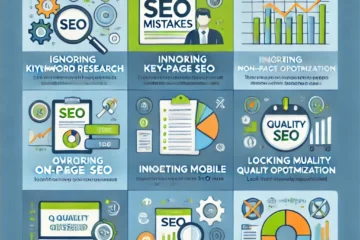Page load speed is important for SEO, without having an optimal webpage load speed ( around 3 to 4 seconds ) users will begin to hit the back button in search of faster websites. Slow webpages will also impact searchbot crawling, by slowing webpages from loading, searchbots will go elsewhere and come back later or not until crawling errors or warnings are fixed. Webpage load speed impacts SEO by preventing searchbot crawlers from viewing the webpage. Searchbots will not give up when this happens, however they will go crawl elsewhere and come back. If a website isn’t being crawled, then website indexing isn’t being updated, when new webpages are created.
Many times what is preventing webpages from loading faster are file sizes. The way some layouts of files contain a lot of white space in them, white space in these reference files cost time. Removing the white space also called deminifying can save webpage load time. Also, reducing the size of images and videos used can help save webpage load time as well. Other on page SEO factors like 404 error pages and a lack of 301 redirect optimization can cost page load speed too.
To AMP Or Not To AMP
It’s not a question, it’s often just a cost issue, since implementing AMP does not harm SEO at all, in fact, it can improve SEO. And if you’re not using a CMS like WordPress or Drupal, then implementing AMP pages, could be a costly project. If that was the case, consider moving to a CMS, as customized website frameworks can also lead to SEO problems. There is a reason Google sends Googlers to work with WordPress, Google wants to go where the traffic is.
Amp webpages can provide the SEO boost to showcase a website on page one for mobile, and will also display a blue lightning bolt amp symbol, that shows users in the know, you have a faster mobile site. In the age of time sensitivity, speed matters and that mobile speed boost could be just what a business needs to outrank a competitor. As time goes on, SEO will adopt more technical SEO elements and alter the search engine landscape that much more. Webpage load speed can also impact a company’s profit margins, since users will not convert on a site that loads slowly.
Webpage Speed Can Signal Website Health
One of the bigger reasons Google even programmed searchbots to care about webpage load speed, is that it can highlight a bigger problem on the website. When the website takes a longer time then normal to load, the issues that are slowing down the site, often are SEO factors needing fixed. When a website owner doesn’t address these problems, search engines get the signal and spend minimal time looking at the website in return. Much of this is factored into a larger algorithm that basically filters slow websites out of search engine’s profit margin. Why send resources to a website that isn’t fixing problems previously reported, it’s wasted effort. So without a healthy website, there isn’t a healthy amount of website crawling going on.
If you feel your website has a page load speed issue, contact SEOByMichael and have a SEO audit done on your website, know what issues are holding your website back from indexing.


